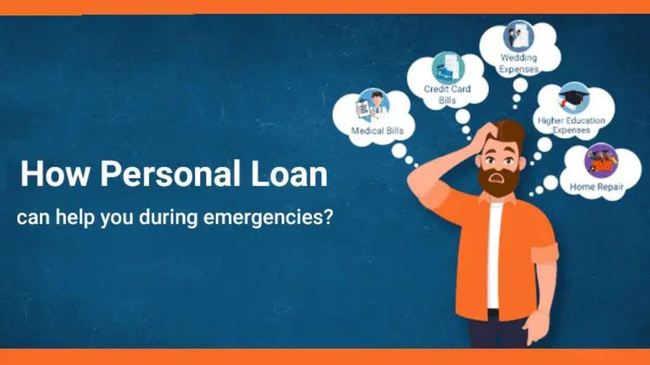Introduction
Life is filled with unexpected twists and turns. While some moments bring joy and success, others test our resilience with sudden challenges and crises. In these unpredictable moments, whether they’re medical emergencies, natural disasters, or unforeseen personal events, financial strain can add to the already heightened stress. Imagine being hit with a medical emergency and the twin burden of ensuring health while being financially stretched. Such situations, however daunting, are not insurmountable. Through the ages, credit has acted as a cushion during such personal emergencies, offering a glimmer of hope and stability. This article delves deep into how credit has become an integral part of navigating personal emergencies, highlighting its historical significance, the present-day patterns, and what the future holds. Join us on this journey of understanding how, even in the most challenging times, credit can be the silver lining, transforming obstacles into opportunities.
Development
The Historical Fabric of Credit in Personal Emergencies
Historically, communities and families relied on mutual aid systems in times of need, pooling resources together. As societies evolved, so did the need for more structured financial assistance mechanisms. This led to the establishment of money lenders, pawnbrokers, and eventually, modern banks and credit institutions that can provide immediate assistance during personal emergencies.
The Lifeline of Credit During Emergencies
Medical Emergencies
Hospital bills, medications, and treatments can be substantial. Credit can ensure timely medical interventions without the financial burden weighing heavily.
Natural Disasters
In the aftermath of events like floods, earthquakes, or storms, credit can expedite rebuilding and recovery processes.
Loss of Employment
Credit can act as a bridge during the transition period, covering essential expenses until a new job is secured.
Types of Credit Options for Personal Emergencies
Emergency Personal Loans
Tailored for urgency, these loans often have faster approval processes.
Credit Cards
An immediate line of credit that can be used for a variety of emergencies.
Overdrafts
Some bank accounts offer the option to overdraw with an agreed limit, useful for short-term needs.
Payday Loans
Short-term loans to cover expenses until the next paycheck. However, they often have high interest rates.
What to Consider Before Leveraging Credit for Emergencies
Interest Rates
Opt for credit options that offer the most favorable rates.
Repayment Terms
Understand the flexibility and duration of repayment.
Hidden Fees
Stay vigilant about any hidden charges or fees that might add to the financial strain.
Patterns, Tendencies, and Future
Patterns
A marked increase in people seeking credit for health-related emergencies, especially with the rising medical costs.
Tendencies
A move towards digital lending platforms that offer faster loan approvals for emergencies.
Future
Integration of AI and machine learning in the credit industry to predict personal emergencies, offering preemptive credit solutions to individuals.
Advices/Tips
Build an Emergency Fund
While credit is a great tool, it's beneficial to have savings for emergencies to reduce reliance on borrowed money.
Assess Your Needs
Only borrow what's necessary to avoid excess debt.
Seek Financial Counseling
If facing continuous emergencies, consult with financial advisors to better manage your finances.
Conclusion
In the intricate tapestry of life, personal emergencies are the unexpected threads that can sometimes alter our entire design. These moments, often overwhelming, require more than just emotional strength; they necessitate financial readiness. Through the ages, credit has proven to be a steadfast ally during these times, helping countless individuals transition from moments of despair to stability. While leveraging credit, it's imperative to approach it with mindfulness, ensuring that it acts as a stepping stone rather than a stumbling block. As the world continues to evolve, and with the ever-present unpredictability of life, having a robust understanding of credit's role during personal emergencies becomes paramount. It's not just about weathering the storm, but also about harnessing its power to set sail towards brighter horizons. Through responsible borrowing, strategic financial planning, and a grasp of the available credit tools, one can truly turn crises into opportunities, making the journey of life not just bearable but also enriching.

